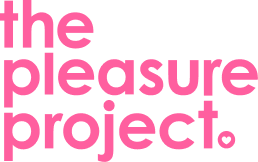Our friend Ana Santos recently published a column in the Manila Times and on her blog entitled “Being Positive About HIV/AIDS“. She has graciously granted us permission to repost the column here, but you can also read it on her website.
Saturday, August 15, 2009
THE SINGLE FILES
By Ana Santos
Being positive about HIV/AIDS
By the time that this column comes out, the 9th International Conference on AIDS in Asia and the Pacific (ICAAP) in Bali, Indonesia would have come to an end.
ICAAP is the world’s second biggest gathering of HIV/AIDS public health-care specialists, policy makers, international donor groups, people living with HIV/AIDS (PLHIV/PLWA), and HIV/AIDS activists from various backgrounds to share knowledge, skills, ideas and research related to HIV and AIDS.
As the conference comes to an end, I now reflect on the many things that made an impact on me during this Congress—my first ever HIV/AIDS conference.
When I first arrived, it was the genuine warmth of the Balinese culture that made me feel instantly at home on the island. Visitors to Manila always say something about the hospitality of the Filipinos. I was on the receiving side of that kind of hospitality and felt the difference it made on a person visiting a country for the first time.
During the Congress, it was the many people that I met and listened to.
There was Gurmit Singh from the International AIDS Society in Geneva who delivered a speech during the opening of the Congress. I still remember Gurmit’s firm call for the development of legislation and policy sensitive to the actual human needs of PLHIV/PLWHA. He ended his speech with an urgent call to end the discrimination that many PLHIV /PLWHA continue to face until today—more than 20 years since the discovery of this epidemic, saying that “it should be nobody else’s business as to who we sleep with.”
Then there were the young ICAAP volunteers who tirelessly answered my questions, showed me the way to the bathroom, (as well as the conference room and plenary halls), manned the media center and gave out leaflets announcing press conferences—always with a smile on their face. Apart from the volunteers, there was a very strong youth group like the Bali Youth Force—present at the ICAAP—lobbying for their reproductive health rights. They were so inspiring and made me look back with a tinge of regret on my own youth that I spent most of being apathetic and cavalier.
And lastly, there were the people who introduced themselves to me after the presentation that I made on safe sex in Philippine media. This presentation was made with the invitation of The Pleasure Project, a UK-based organization that aims to integrate the concept of pleasure and erotica into the message of safe sex for the simple reason that pleasure is the main reason people have sex in the first place.
Mostly, these people wanted to congratulate me and tell me about the censorship and disapproval they encountered when promoting safe sex in their own home countries. Several Filipinos also came up to me to tell me that they believed in the advocacy of safe sex and being all too familiar with the morality issues that are easily muddled with reproductive health rights in the Philippines, told me not to give up on the fight against HIV/AIDS and the many issues of stigma and discrimination that surround it.
The encouragement and solidarity they showed reminded me of one of the sessions I attended entitled: “Men Having Sex with Men: Cultural and Social Dynamics.”
During the question and answer portion, one woman asked how someone becomes gay—if it was a matter of choice or cultural/societal influence—because she would like to protect her son.
The panel seemed quite unsure of how to answer her question. The atmosphere was suddenly charged with awkwardness as eyes widened and jaws dropped around the room.
One openly gay man went up to the microphone and answered, “Sexual orientation is the most natural thing in the world and has been practiced [pertaining to MSM] for a long time. What is actually more unnatural is hatred. And the one thing that we need to continue to fight at a Congress like this is ignorance.”
And that made the most impact on me. Because that gentleman was right.
Statistics, medical research and legislation can and will continue to be discussed in succeeding conferences as well as in a variety of other such symposia. We can discuss empowerment and upholding human rights till we’re all blue in the face.
But until there is a way to successfully break down the walls of ignorance, its subsequent prejudice and latent condemnation, we are only fighting half the battle against this epidemic.


HIV/AIDS is still rampant today and there is no cure for it. we need to practive safe sex all the time because an ounce of prevention is still better than a pound of cure.